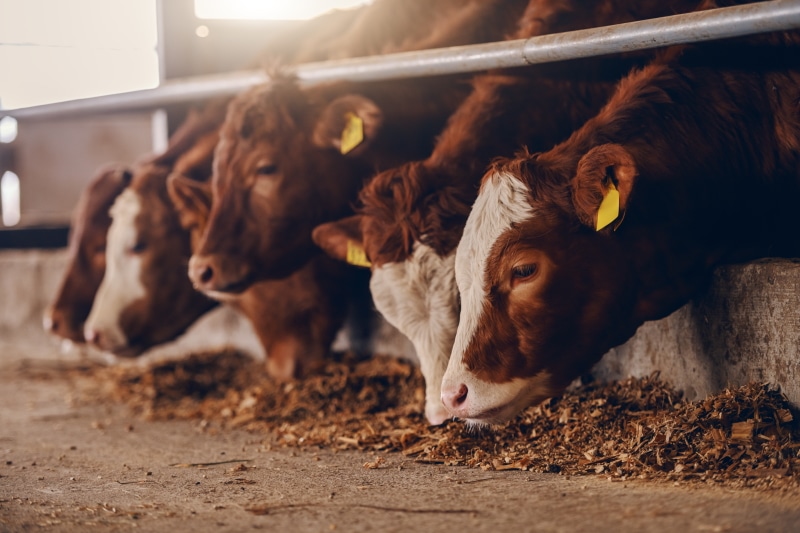A senior UK politician called Alok Sharma, who had recently been nominated as the president of the COP26 Climate Change Conference, was asked at the end of last year if the government would impose a tax on meat given its environmental consequences.
“I have been quite clear that, on a personal level, I am someone who very much believes in carrot rather than stick, trying to encourage individuals to move in the correct path,” he explained.
When asked if people should eat less meat to help save the environment, he stated it was a ‘personal decision.’
While animal agriculture isn’t the only issue that has to be addressed, it should be a key component of any environmental strategy.
Meat vs. the environment
Livestock farming harms the environment, including land degradation, water, and air pollution, resource depletion, biodiversity loss, and global warming.
While scientists disagree on the exact percentage of emissions it is responsible for, it is often assumed to be between 14.5 and 18 percent (though one recent estimate put it as high as 87 percent).
According to key research published in 2018, Western countries would need to cut beef consumption by 90% to avoid disastrous climate change, and the United Nations recently supported a report encouraging world leaders to abandon animal agriculture in favor of plant-based food systems.
Despite abundant scientific data, policymakers and the general public continue to refuse to acknowledge that we must drastically alter our diets.

Choice
This is when the concept of ‘personal choice’ comes into play.
In April 2022, an IPCC study declared that it’s ‘now or never to control global warming, implying that time is running out to let the people decide whether or not they want to consume less meat.
If we are to reach climate objectives and keep important ecosystems alive, governments must take immediate action to help food systems change to plant-based diets — but is taxing meat the best way to do so?
In January 2022, research from the University of Oxford indicated that pricing meat will benefit the environment in nations such as the United States, the United Kingdom, and Australia.
It was discovered that raising the cost of the most harmful foods by 20-60% (depending on the kind of meat) would lower consumption.
According to the report, to represent the environmental consequences of meat production, the average retail price for beef in high-income nations would need to increase by 35-56 percent, 25 percent for poultry, and 19 percent for lamb and pork.
Unbalanced consequences
However, it’s indisputable that hikes like these appear to be contributing to already-increasing food prices, and critics of the meat tax have said that it would disproportionately affect the poor.
This is a critical aspect that proponents of meat taxes must not overlook.
It’s possible that if such a tax were enacted, the drop in consumption would be entirely attributable to the fact that certain individuals would no longer be able to afford it, while the wealthiest would continue to buy meat unaffected.
Governments, on the other hand, should not impose a meat tax and then walk away, leaving the people to pick up the pieces. It should be only one of several steps they take to transition to a plant-based food system that provides food to everyone.
One of the ‘major advantages’ of a meat tax, according to the Oxford study, is that it might provide funds to help farmers transition to other income streams and provide support to people from low-income families, in addition to reducing meat consumption.
“There are methods to make sure that meat taxes don’t place a further financial strain on low-income people,” said Franziska Funke, the study’s primary author and researcher.
“As a result, we propose that meat tax proceeds be transferred to help low-income families or to subsidize fruits and vegetables.”
According to this study, most low-income people might end up with more money than they did before the meat tax reform.
Nutrition
Some may claim that this system is unjust and that it will cause people to go hungry.
However, the notion that meat is a necessary element of our diet is built on decades of brilliant marketing, and it ignores countless studies that have established that plant-based diets are the healthiest for humans, as well as the relationship between meat intake and disease.
Furthermore, the long-term goal should not be for certain individuals to consume meat while others abstain. A meat tax might be an important step toward addressing the problem of excessive meat consumption, but it is not a full answer.
Governments should aim to make plant-based diets more commonplace by making them more accessible to the general public.
Governments contribute billions in subsidies to animal agriculture, which is why meat products are so common in our society.
Subsidies are government-funded incentives given to businesses to reduce costs and make their products more accessible to consumers.
Subsidies to farmers
It is estimated that taxpayers give more than $1 million in global agriculture subsidies per minute. Subsidies provide for over 90% of grazing cattle producers’ revenue in the United Kingdom.
Farmers in the United States get tens of billions of dollars each year.
In 2019, the Trump government provided a $16 billion assistance package on top of usual subsidies, while also reducing $5 billion from the food stamp budget.
Because of this degree of support, harmful meat items, such as inexpensive fast meals, are more readily available than fruits and vegetables.
Crop farming, if given this financing, can feed considerably more people for far less money than our existing system. Crop cultivation uses substantially less space and resources than animal livestock farming and, if prioritized, would be far more efficient at feeding the world.
We are squandering funds that could be used to produce more affordable food on failing businesses that are incapable of feeding the world’s population while also hastening environmental disasters.
Not a quick solution.
Governments should stop supporting the meat and dairy sectors and instead focus their resources on crop production while assisting current animal producers in making the transition.
While a meat tax has the potential to be a useful tool in the transition to a plant-based diet, it should not be considered a stand-alone policy.
Animal farming must be phased out of our food system as soon as possible, and governments should allocate resources accordingly.
They should also take measures to educate the public on the benefits of plant-based eating after years of marketing campaigns that sold the public the completely false assumption that meat and dairy are necessary components of a balanced diet.








